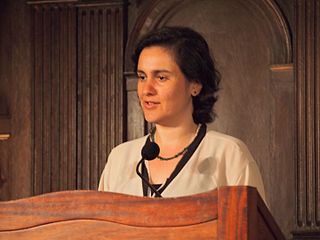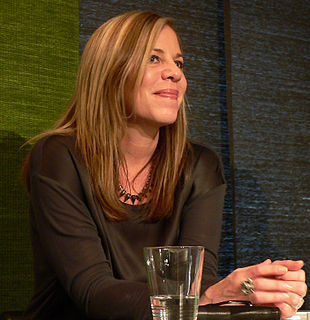A Quote by Joseph Campbell
Where there is a way or path, it is someone else's. Each of us has to find his own way.
Related Quotes
Everyone has an equal and absolute right to sovereignty over his own body, his own property, and his own life, and to pursue his own happiness in any way that he chooses. No one has the authority to grant rights to anyone else, because human beings already possess all natural rights at birth. These rights include both personal and economic freedoms, and the only way they can be lost is if someone takes them away by force. The only right that an individual does not naturally possess is the right to violate someone else's liberty.
With only one life to live we can't afford to live it only for itself. Somehow we must each for himself, find the way in which we can make our individual lives fit into the pattern of all the lives which surround it. We must establish our own relationships to the whole. And each must do it in his own way, using his own talents, relying on his own integrity and strength, climbing his own road to his own summit.
If someone's lying to us, then it's rare that we know that they're lying to us. It's only in bad films that you recognize immediately that an actor's playing in such a way that you can see that he's lying, and that's simply dumb. But to reach that, it requires that you make a film in such a way that a spectator feels compelled to find his own explanation. You want to lead the spectator to find his own interpretation. To ask questions rather than provide all of the answers. Doing that leads to open endings and open dramaturgy.
Cultivate your garden? Do not depend upon teachers to educate you ? follow your own bent, pursue your curiosity bravely, express yourself, make your own harmony? In the end, education, like happiness, is individual, and must come to us from life and from ourselves. There is no way; each pilgrim must make his own path. "Happiness," said Chamfort, "is not easily won; it is hard to find it in ourselves, and impossible to find it elsewhere.
If the best way to learn to succeed is to fail as fast as possible, then the second-best way is to watch someone else fail as fast as possible. Watching someone else screw up is a kind of rehearsal for your own eventual downfall. A close observation of someone else's attempt to resolve a difficulty is a great way to acquire real-world insight into whether and when to deploy their method in your own times of trouble.
Her definition of romance was absentminded intimacy, the way someone else's hand stray to your plate of food. I replied: no, that's just friendship; romance is always knowing exactly where that someone else's hands are. She smiled and said, there was a time I thought that way, too. But at the heart of the romance is the knowledge that those hands may wander off elsewhere, but somehow through luck or destiny or plain blind groping they'll find a way back to you, and maybe you'll be smart enough then to be grateful for everything that's still possible, in spit of your own weaknesses- and his.
Perhaps the greatest charity comes when we are kind to each other, when we don’t judge or categorize someone else, when we simply give each other the benefit of the doubt or remain quiet. Charity is accepting someone’s differences, weaknesses, and shortcomings; having patience with someone who has let us down; or resisting the impulse to become offended when someone doesn’t handle something the way we might have hoped. Charity is refusing to take advantage of another’s weakness and being willing to forgive someone who has hurt us. Charity is expecting the best of each other
There will be no one like us when we are gone, but then there is no one like anyone else, ever. When people die, they cannot be replaced. They leave holes that cannot be filled, for it is the fate - the genetic and neural fate - of every human being to be a unique individual, to find his own path, to live his own life, to die his own death.

































